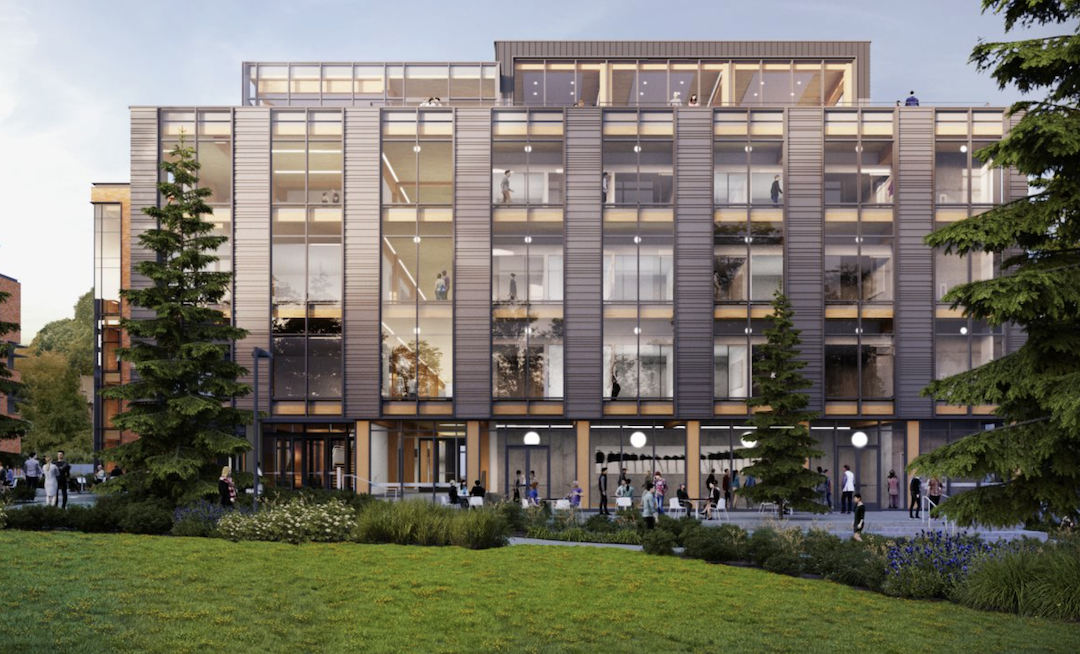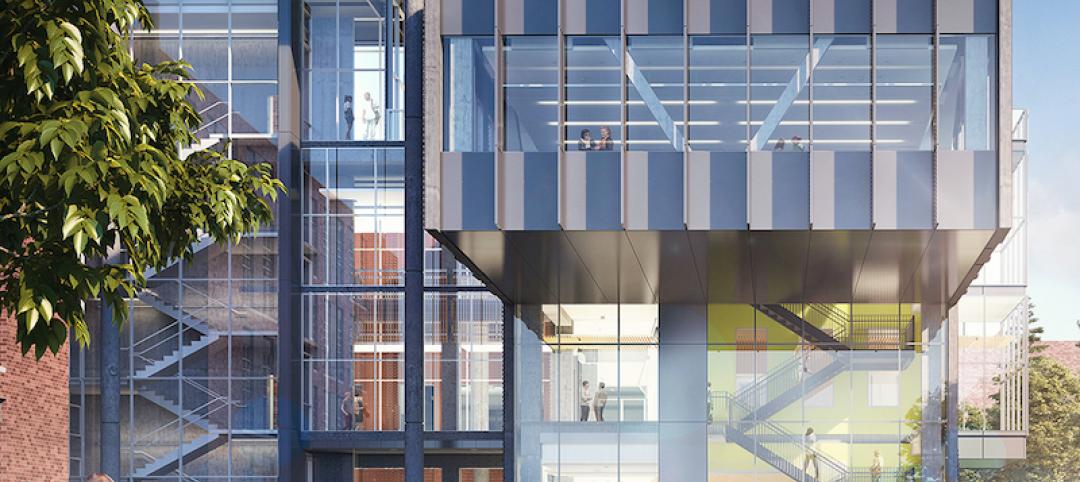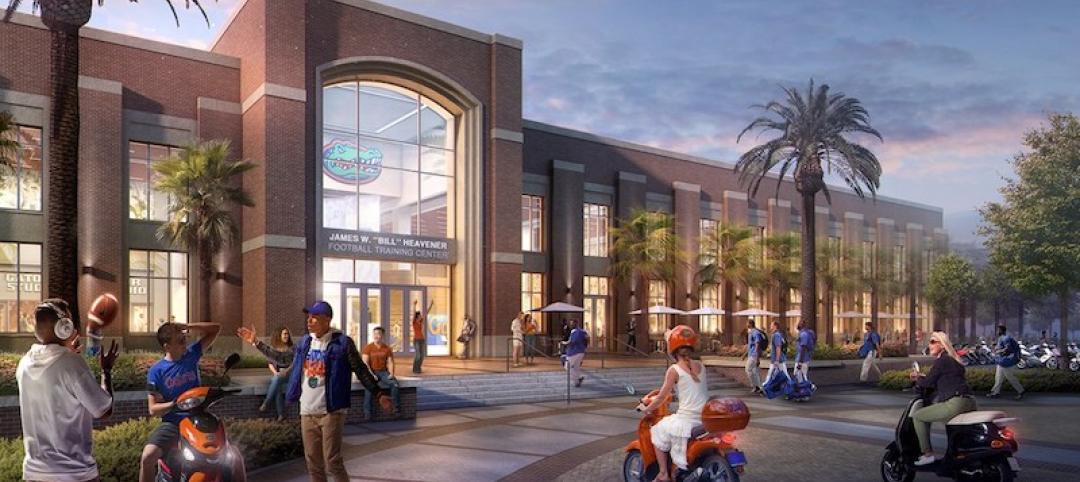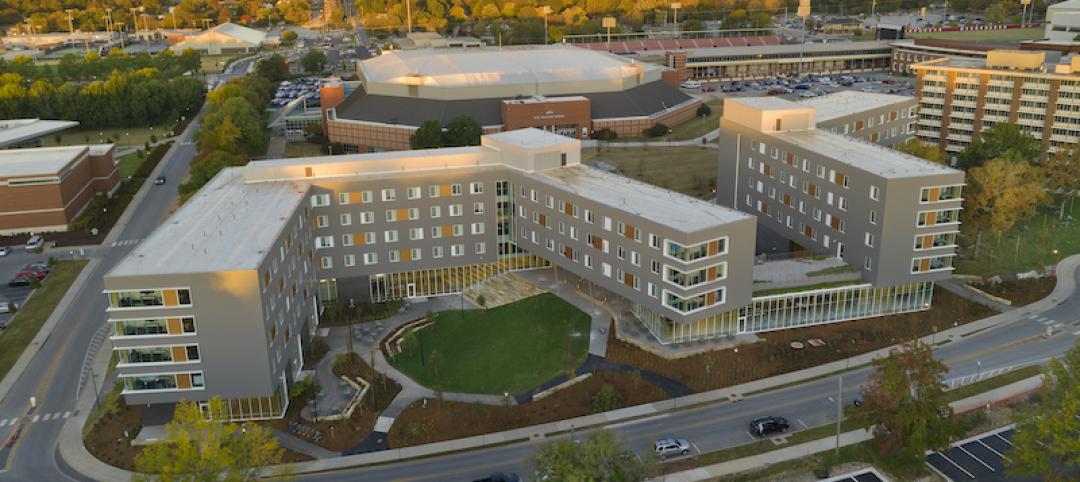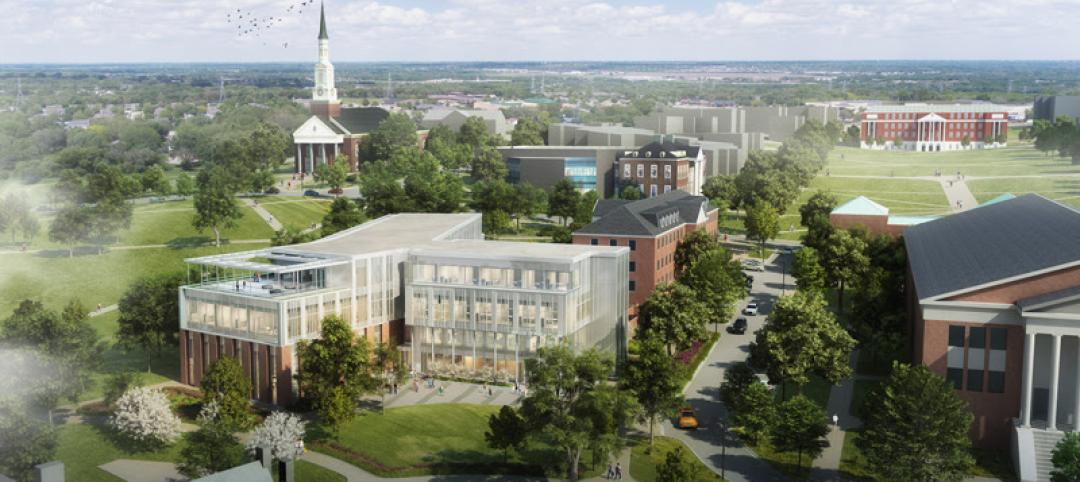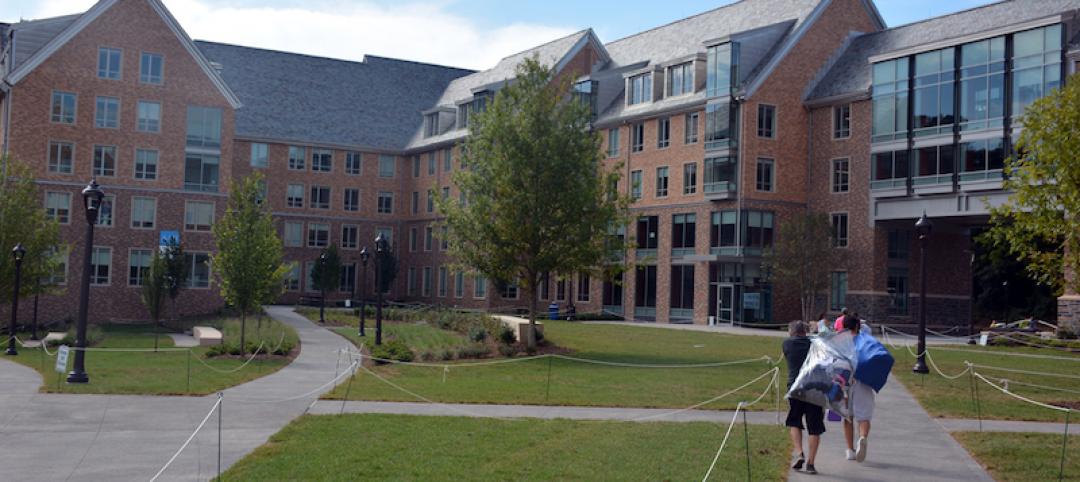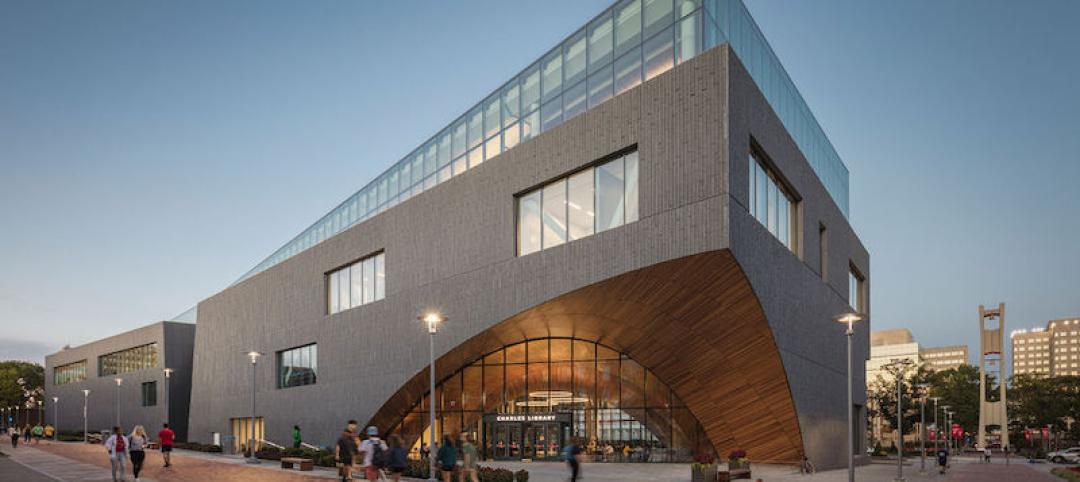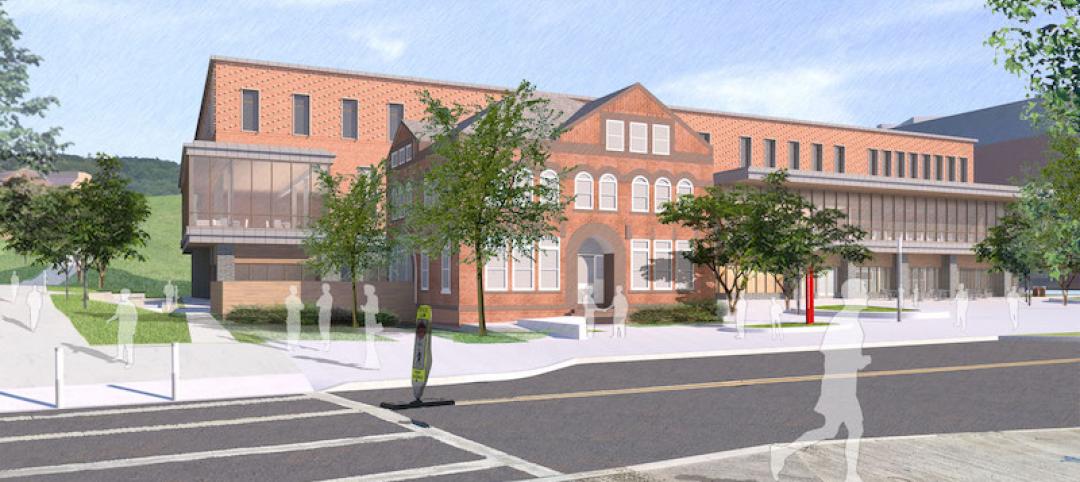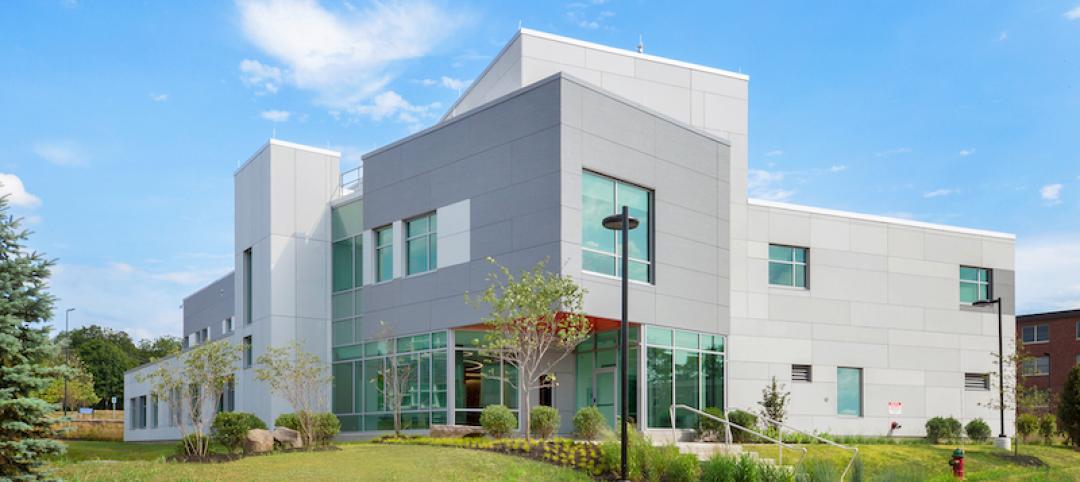Founders Hall, a new 85,000-sf mass timber structure, has topped out at the University of Washington. The project expands the Michael G. Foster School of Business while revitalizing the campus core by framing the northeast edge of historic Denny Yard.
The building is organized in two parts to optimize program functionality of workplace, learning, and collaboration activities. Active-learning, collaboration, and event spaces are positioned at the south edge of the site to engage the distinctive qualities of the Denny Yard landscape and provide a link to the pedestrian pathways that traverse the precinct. Landscaped terraces and rain gardens reinforce the natural slope and evergreen plantings of the open space.
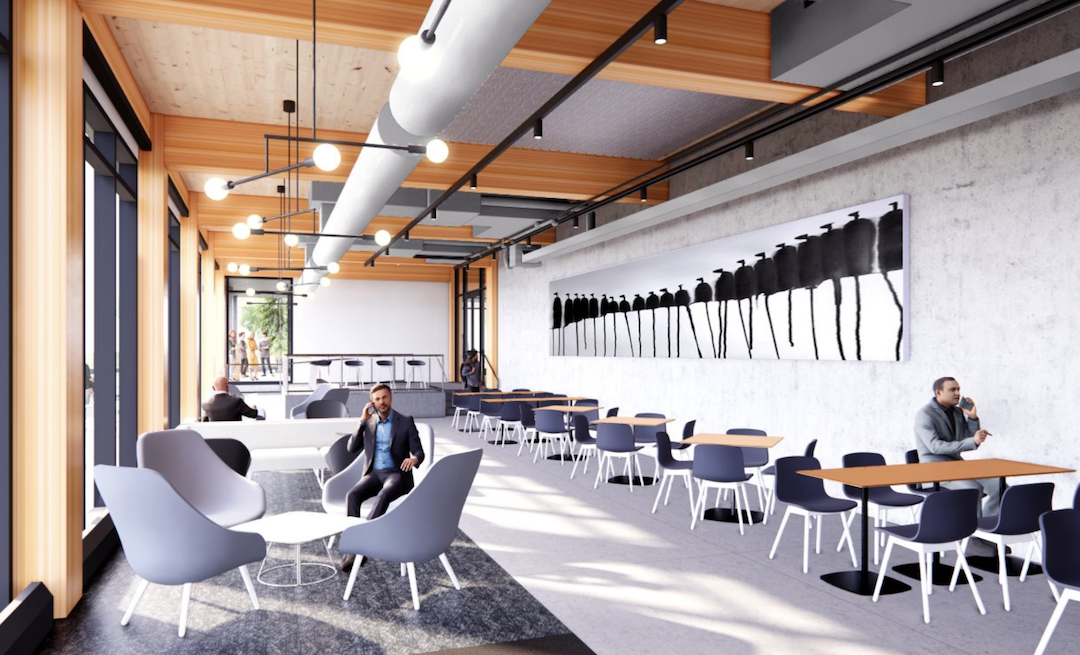
An open circulation space serves as a central connector with a feature stair that provides shared access to tiered classrooms, student commons, a special event venue, and an outdoor terrace. The tiered classrooms are designed to serve group sizes from 65 to 135 students with active-learning functionality. Twenty-eight team rooms, four conference rooms, a student commons, and an event forum with an adjacent roof terrace further activate the collaboration zone.
A series of collaboration spaces located throughout the building are designed to encourage teamwork and foster spontaneous interaction among students, program staff, and the broader business community. Classrooms, conference facilities, and recruiting spaces will provide expanded opportunities for community and corporate engagement through hosting events and inviting outside speakers, alumni, and corporate recruiters.
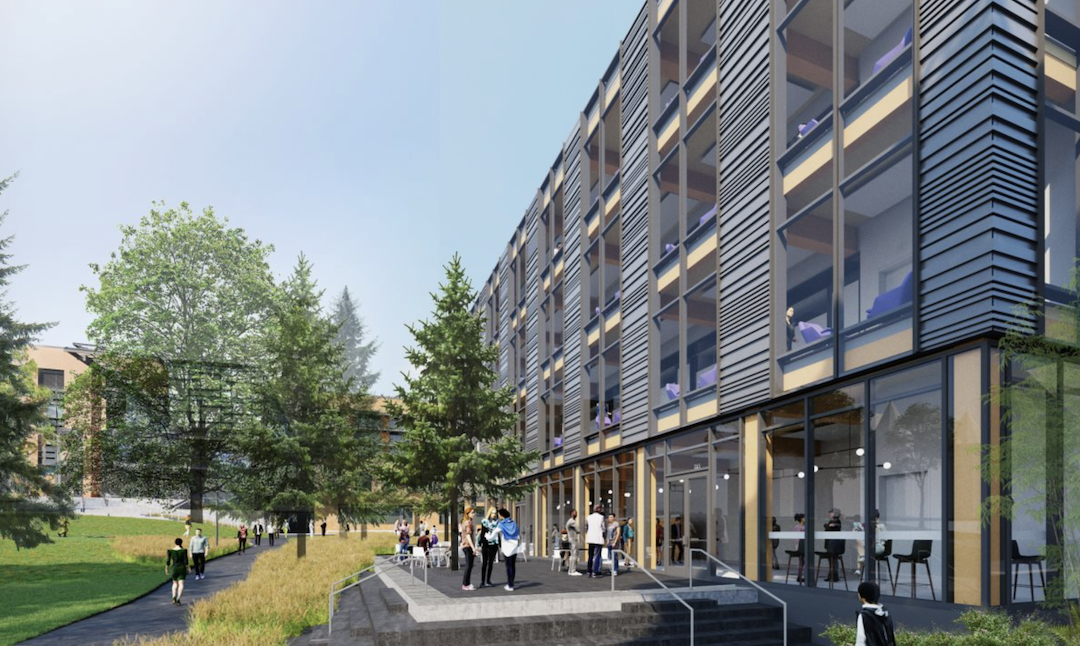
Founders Hall is designed for sustainable performance and social connection. The project is a model for sustainable design at the University of Washington and embraces UW’s Green Building Standards, which has helped the project reduce emissions from embodied carbon by 83%.
“The 83% reduction in operational carbon is a result of careful balancing between envelope performance, the mechanical system design, and the users’ commitment to leverage operable windows and ceiling fans in lieu of energy-intensive air conditioning,” said Robert Smith, Principal, LMN Architects, in a release.
Founders Hall is slated for completion in the summer of 2022.
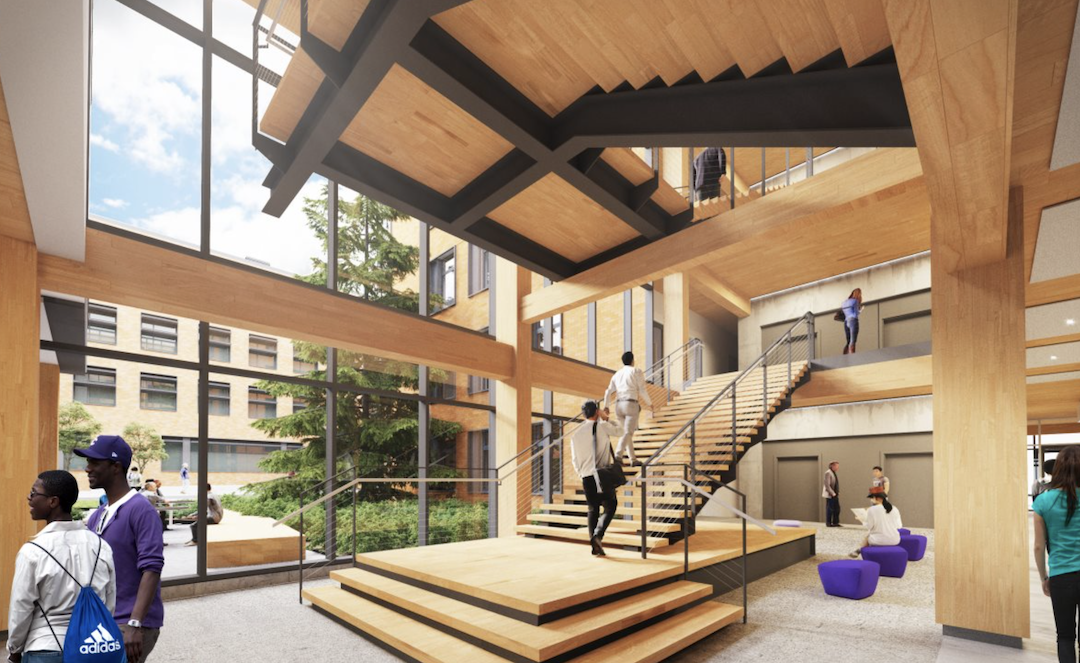
Related Stories
University Buildings | Jan 6, 2020
Making it: Gen Z learns by doing
This fundamental shift in learning style will have an impact on higher-education space planning.
University Buildings | Dec 17, 2019
Two LMN Architects-designed academic science buildings move forward for completion next year
These facilities will bring several disciplines under one roof.
University Buildings | Dec 12, 2019
HOK will design the Florida Gators new football facility
The facility will be named after longtime donor to the University of Florida and the University Athletic Association James W. “Bill” Heavener.
Wood | Dec 6, 2019
The University of Arkansas is now home to America’s largest mass timber building
A design collaborative led by Leers Weinzapfel Associates, Modus Studio, Mackey Mitchell Architects, and OLIN designed the project.
University Buildings | Nov 1, 2019
Design unveiled for the University of Maryland’s School of Public Policy building
LEO A DALY, in association with VJAA, designed the building.
University Buildings | Oct 28, 2019
Eight projects showcase the latest trends in student housing
Join us on a tour of select student residences at some of America’s top four-year colleges and universities.
University Buildings | Oct 10, 2019
Duke’s Hollows Quad residence halls provide housing for 700 upperclassmen
William Rawn Architects designed the project.
Libraries | Oct 2, 2019
Temple University’s Charles Library includes a ‘BookBot’ storage and retrieval system
The project was designed by Stantec and Snøhetta.
University Buildings | Sep 30, 2019
UMass Amherst’s Worcester Commons to be built on an existing parking lot
Shawmut, in partnership with Perry Dean Rogers and Connor Architecture, are designing the project.
University Buildings | Sep 23, 2019
Engineering Innovation Hub completes on SUNY New Paltz campus
Urbahn Architects designed the project.


